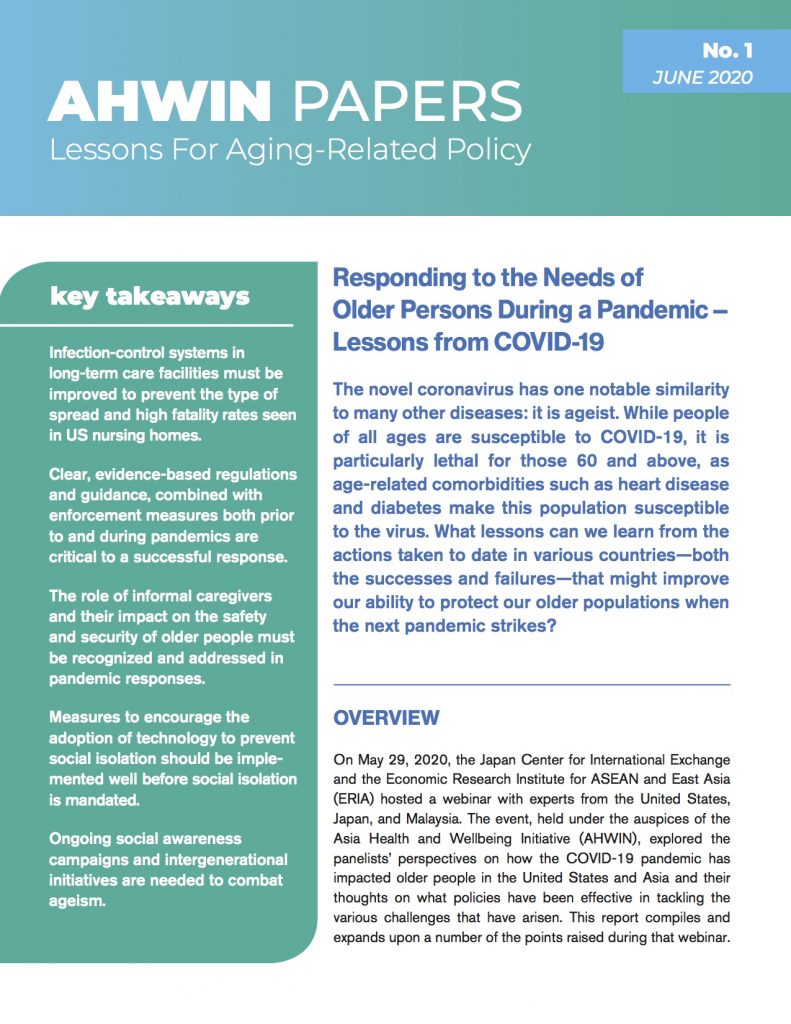The novel coronavirus has one notable similarity to many other diseases: it is ageist. While people of all ages are susceptible to COVID-19, it is particularly lethal for those 60 and above, as age-related comorbidities such as heart disease and diabetes make this population susceptible to the virus. What lessons can we learn from the actions taken to date in various countries—both the successes and failures—that might improve our ability to protect our older populations when the next pandemic strikes?
This report draws on panel discussions at a June 2020 webinar to explore what policy lessons can be learned from the experiences of the United States, Japan, and Malaysia during the COVID-19 pandemic.


